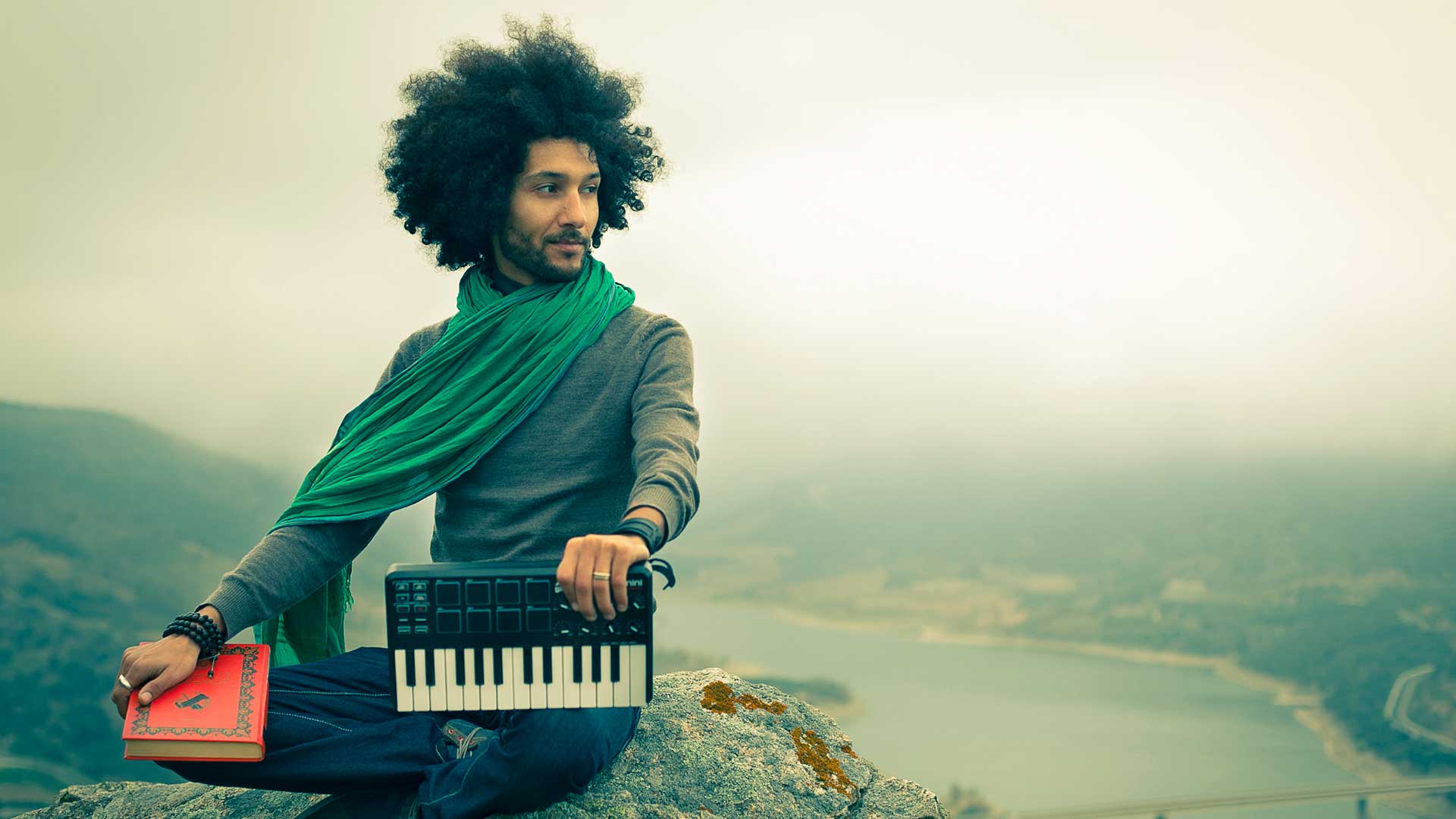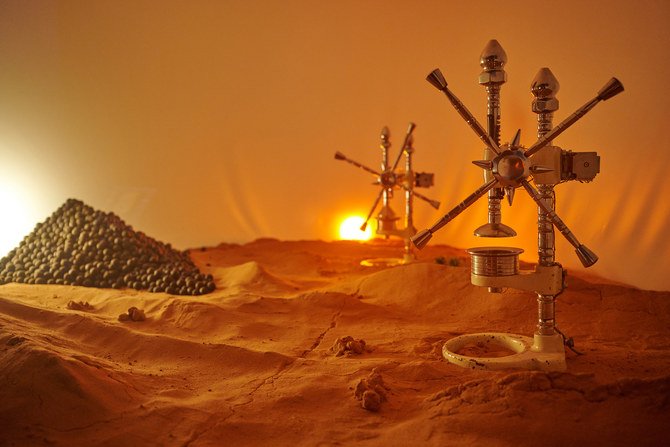Lifestyle
3.19.2021
Walid Ben Selim: “From Neruda to Darwich, poetry lifts us up”.

Last November, at the Institut du Monde Arabe, the Moroccan singer and slammer Walid Ben Selim was supposed to flood the auditorium with his devastating flow on the prose of the famous Palestinian poet Mahmoud Darwich. The event was cancelled due to the Covid-19 pandemic. KAWA News went to meet the slammer and offers you an exclusive interview with the former rapper on the sidelines of World Poetry Day this Sunday.
As part of a performance entitled “The Dice Player”, in reference to the testament poem of the same name left by the Palestinian poet Mahmoud Darwich on the eve of his death, the Moroccan singer and ex-rapper Walid Ben Salim was to declaim the poet’s verses in his mystical voice in front of the auditorium of the Arab World Institute last November. The metaphysical poem, which examines the notion of chance in human existence, was also to be set to music with his teammate from the fusion group N3rdistan, the Tunisian qanoun player Nidhal Jaoua, and the Franco-Italian pianist Agathe Di Piro. The event did not take place because of Covid 19, and KAWA chose World Poetry Day to share its encounter with this singer, enchanter and founder of N3rdistan.
What were your first steps in music?
I first went to the Casablanca Conservatory, where I studied the violin, but I quickly turned to rap with a band called Thug gang, where I met Widad (editor’s note: Widad Brocos, his teammate in N3rdistan). It was the beginning of rap in Morocco, what was called the Nayda, a great cultural movement that brought out a new Moroccan scene. Then I came to France at the age of 17 where I evolved towards metal and met musicians with whom I played Arabic fusion metal. But I really got the trigger in 2011 when a French singer I joined on tour asked me to sing at the end of the concert. I got spotted by an Indian painter who invited me to do residencies in India, especially in Kerala.
What does N3rdistan mean?
N3rdistan is the country of exiled people. The word “N3rd” in Arabic means “dice”, so it is also the country of luck and chance. It is a nod to the poem by the Palestinian poet Mahmoud Darwich “the dice player”. As musicians using digital sounds, we are also nerds moving towards a digital exile. A rather positive exile because I belong to a generation that grew up in a closed country and which saw Internet arrival as a window open to the outside world. Otherwise N3rdistan is also a fusion band with electronic sounds.
What made you want to declaim Arabic poetry in music?
Poetry has a central place in my life. I find that there is nothing more natural than poetry and if the world had a little more of it, everything would be better. From the poetry of Neruda to the one of Mahmoud Darwich, poetry is what lifts us up. The problem is that we often think that it is inaccessible, whereas it is everywhere in our daily lives. That’s why we also run workshops to break this glass ceiling image that there is around poetry, to show that it is accessible everywhere in our lives.
Which poets inspire you?
It used to have this distorted image that poetry was all about love. And since I was into rap and metal, I didn’t really want to attack it from that angle, but rather from the angle of resistance or revolt. One day, a friend introduced me to the Iraqi poet Ahmad Matar and I discovered that poetry could be engaged and even revolted, especially with the poem “Irhalou! “which means “Get out of the way! “in Arabic and resounded quite a bit during the uprisings of the Arab spring. This discovery reconciled me with poetry.
How did the idea for “the Dice Player” project come about?
Two years ago, on the tenth anniversary of Mahmoud Darwich’s death, I was called with several artists by a french festival to compose 2 or 3 pieces based on its poems. We were several to go on stage and at the end of the show, the festival director asked me if I was interested in going further. I told him that I would like to recite the entire “Dice Thrower” poem. When we started working on the text with the other musicians, we were all turned upside down. Maybe because it questions everything, starting with the question “who am I?”.
How do you explain that this poem was so successful?
I think it is his most human poem, where the question of being is most fully explored.This poem evokes the fact that even in the deepest fatalism, there is always a way to change. This possibility of change in chance and decision, of balancing between freedom and determinism, is what makes it unique. And obviously when these words come from the greatest poet and ambassador of Palestine, the message becomes very strong.
popular

